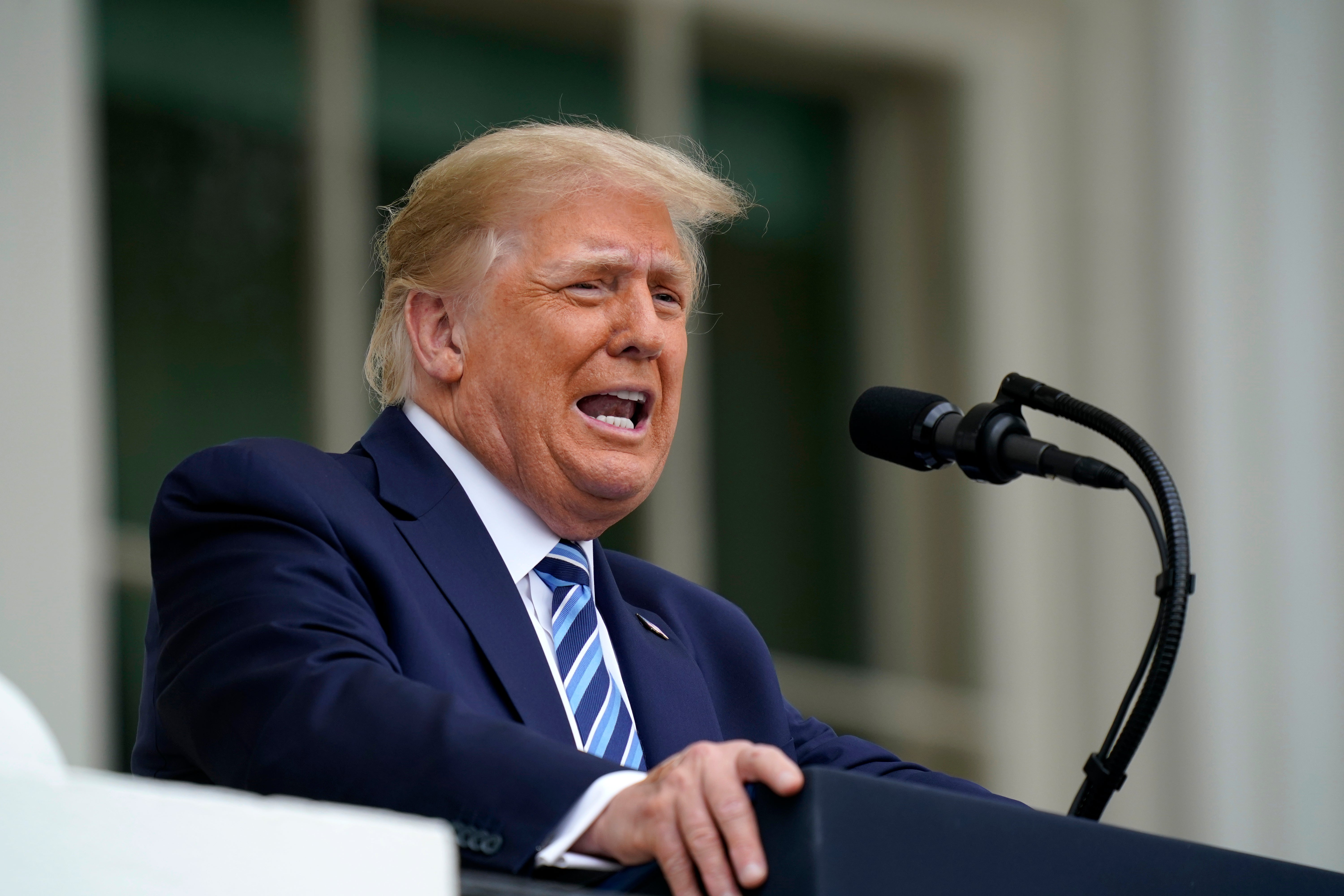Trump tries to revive stalled election-eve drug discounts
The Trump administration is trying to revive the president’s stalled election-eve plan to send millions of Medicare recipients a $200 prescription discount card

Your support helps us to tell the story
From reproductive rights to climate change to Big Tech, The Independent is on the ground when the story is developing. Whether it's investigating the financials of Elon Musk's pro-Trump PAC or producing our latest documentary, 'The A Word', which shines a light on the American women fighting for reproductive rights, we know how important it is to parse out the facts from the messaging.
At such a critical moment in US history, we need reporters on the ground. Your donation allows us to keep sending journalists to speak to both sides of the story.
The Independent is trusted by Americans across the entire political spectrum. And unlike many other quality news outlets, we choose not to lock Americans out of our reporting and analysis with paywalls. We believe quality journalism should be available to everyone, paid for by those who can afford it.
Your support makes all the difference.The Trump administration is trying to revive the president's stalled election-eve plan to send millions of Medicare recipients a $200 prescription discount card.
A person familiar with the effort tells The Associated Press that government agencies still face legal questions about the plan. That's on top of the daunting logistics of sending an estimated 39 million people a functional card in the midst of the holiday season without the benefit of much advance planning. The person was not authorized to publicly discuss internal deliberations and spoke on condition of anonymity.
A White House spokesman had no immediate response to a request Wednesday for an update on the status of the cards. Last week, presidential spokeswoman Kayleigh McEnany told reporters she was unaware of any current discussions about the card.
President Donald Trump announced the discount cards were coming as part of a Sep. 24 speech calling attention to his unfinished health care agenda. As he described the idea, it seemed like the cards were about to go in the mail. Some people wondered if they would bear the presidents’ name.
“Nobody has seen this before,” Trump said at the time. “These cards are incredible. The cards will be mailed out in coming weeks.
“I will always take care of our wonderful senior citizens,” Trump added. “Joe Biden won’t be doing this.”
The idea is that seniors would use the cards to save $200 off their prescription copays. If Trump can manage to start distribution before Biden is sworn in Jan. 20, the new administration might be hard pressed to stop it.
But the cost to taxpayers has been estimated as high as $7.8 billion, not counting administrative expenses. The spending has not been authorized by Congress, which has the power of the purse.
The money would come from Medicare’s Supplemental Medical Insurance Trust Fund, which is directly supported by the Treasury and not from payroll taxes that cover inpatient care.
Congressional officials worried that if the Trump administration carries out the plan, it would in effect create a budgetary trap door through which future administrations could try to spend billions of dollars without congressional approval.
Several leading Democratic lawmakers have written Health and Human Services Secretary Alex Azar, questioning the legality of the plan.
The White House has framed the plan as a “demonstration program" to test if the extra cash will make seniors more likely to stay on their medications and avoid costly hospitalizations.
But Reps. Frank Pallone, D-N.J., Richard Neal, D-Mass, and Sen. Ron Wyden, D-Ore., have argued that sending cards to nearly all Medicare recipients is not a test. For example, there wouldn’t be a control group against which to measure results. Therefore, such a mass mailing would not meet legal standards for a Medicare demonstration program to test a new idea.
Trump came into office promising to get tough on drug prices, but he was unable to win over enough congressional Republicans to pass broad legislation, and Democrats had more ambitious ideas. Some of Trump's regulatory initiatives to curb prescription costs face legal challenges from industry. Prices for brand name drugs continued to rise during his term, though not as sharply as in previous recent years.